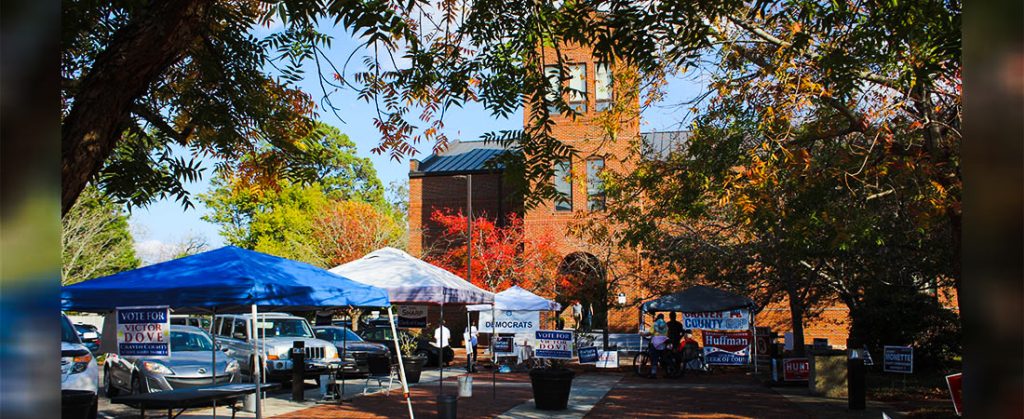
The New Bern Board of Aldermen have instructed staff to explore options for delaying the city’s scheduled 2025 election cycle until the following year.
After three-hours, Alderman Bob Brinson brought up city elections during the new business portion of the Oct. 10 meeting. He recalled a citizen asking the board to consider moving the elections from 2025 to even numbered years. After reading the Craven County Board of Elections website and speaking with Director Susan Williams, he said he believed moving the election to 2026 could benefit the board and taxpayers.
He stated every municipality in the county except New Bern has already moved their elections to even numbered years, with some county voters going to the polls in 2024 and some in 2026.
According to the BOE’s website, the majority of election cycles held in Craven County are every two years in even years. Some have two-year terms, and most are staggered terms. Vanceboro doesn’t allow absentee voting. New Bern elections include a runoff and are held every four years in odd numbered years without staggered terms.
Brinson mentioned the discussions the last BOA had in February of 2021 about moving that year’s scheduled elections to 2022. He said former Craven County Elections Director Meloni Wray estimated that holding the election in 2021 would cost the city a total of $73,380, while the price of an election held during an even numbered year would drop to approximately $5,300.
Though the previously elected board decided against moving the election, the North Carolina General Assembly extended their terms until 2022 because of delays in the gathering of national census data due to the COVID-19 pandemic and the requirement that the city’s redistricting process be completed before the election was held.
Brinson said in 2022 the City of New Bern paid the county $6,043 for the general election because it was held during the federal primary and spent $28,929 for the city’s runoff elections.
As a result of the delayed 2021 elections, board members elected in 2022 will only serve terms of three years and three months before running again if the city’s elections are held in 2025. Moving the city’s election to 2026 would allow the current board to serve their full four-year term plus an additional three months.
“I see this as a unique opportunity. If we decide to permanently move the election to an even year, specifically 2026, we would serve four years and three months, which is actually six months shorter than the previous board served,” Brinson said.
When Mayor Jeffrey Odham said, “I wouldn’t be here without the runoff,” Brinson responded, “We can still move the election to 2026 and still have a runoff…to save money.”
Election options and discussions
The last board was in office from Dec. 12, 2017-Aug. 15, 2022. Members were Mayor Dana Outlaw, Alderman Bobby Aster, Barbara Best, Johnnie Ray Kinsey, Jeffrey Odham, Sabrina Bengel, and Jameesha Harris.
The former BOA discussed making changes to the city’s election process several times, including moving elections to even numbered years, switching the candidate selection method from nonpartisan with runoff to a nonpartisan plurality method with no runoff and moving the election date from October to November.
In January 2021, Melanie Wray explained election options to the board. She said the majority of costs are early voting, absentee voting and the runoff election. She outlined the estimated costs in a memo to the city located on pages 97-101.
Wray noted the reason for the lower estimated costs to move the election to an even year was, “because we have to do the other functions associated with an election in all Federal and State elections and cannot bill you for these costs.”
Wray stated, “The City of New Bern allows absentee voting in your city elections, and you do have the option to ‘opt-out’ of this expense.” Wray explained the city could “possibly save approximately $18,194 of absentee expenses in 2021.”
Brinson said the issue was “not urgent” but that he believed it needed to be addressed before the city’s 2024-25 budget was in place.
The city’s budget for fiscal year 2023-24 was balanced at $149,449,202.
The board agreed to give City Manager Foster Hughes and City Attorney Scott Davis direction to investigate the options for moving the city elections to an even year beginning in 2026.
By Todd Wetherington and Wendy Card, co-editors. Send an email with questions or comments.

